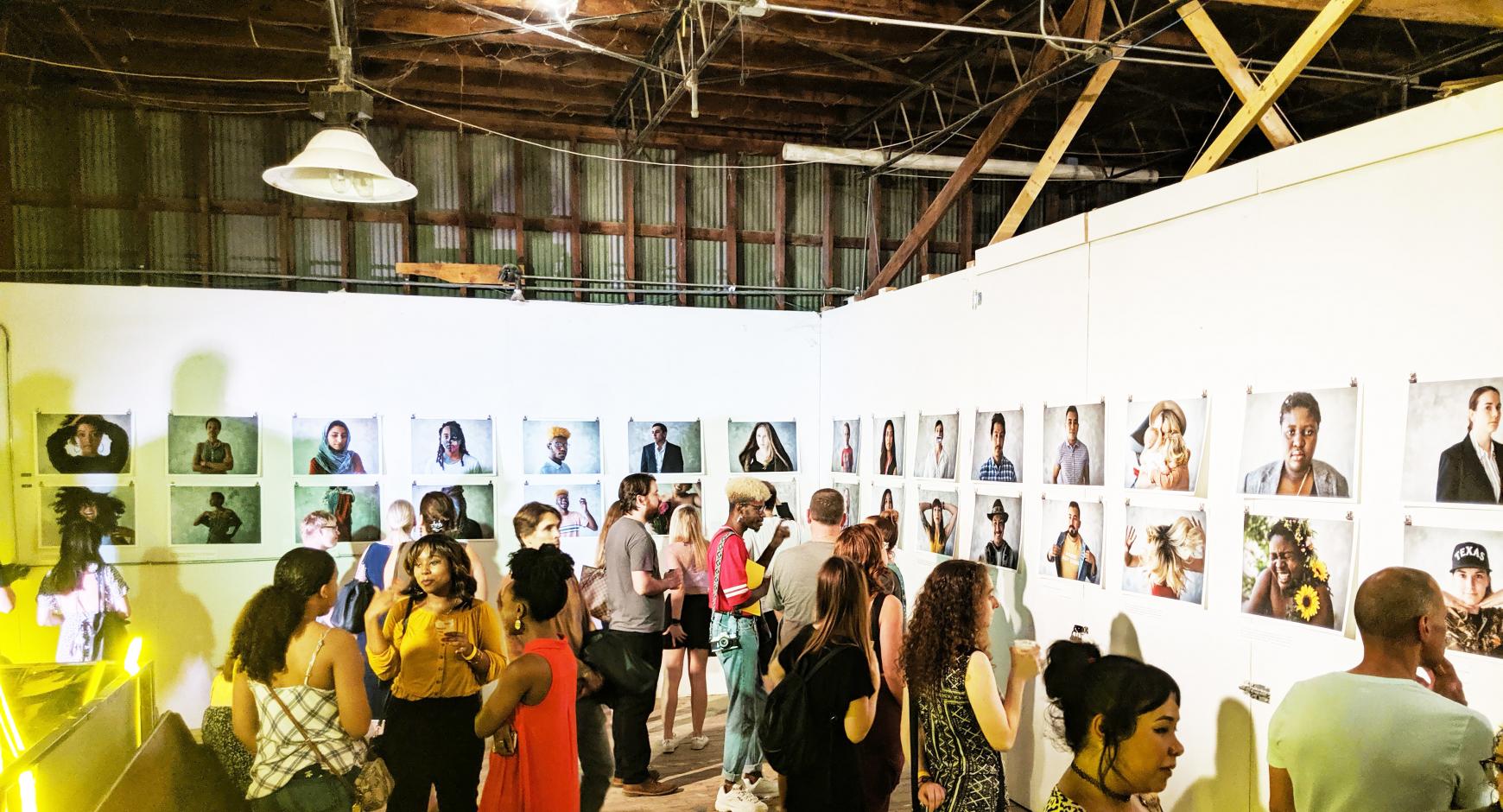
Last weekend, an East Austin warehouse featured the “Fully Free: Identity Expression” Art Exhibit, an exhibit highlighting people’s experiences with identity expression.
Spearheaded by Fully Free Art Collective, the exhibit brought visibility to an array of social identities, adding more diverse representation to the mainstream image of identity, and highlighting the many aspects of society that do not allow people of specific social identities to present as their full selves.
The project shed light on the parts of social identity that people feel they must mask to maintain respect, relationships, and physical and emotional safety, with the goal of bringing more representation and visibility to identities often not included in mainstream narratives.
Each project participant had two photos taken. The first photo portrayed how they present when they have to mask parts of their identity, and the second photo displayed how they present when they feel fully free to be themselves. In addition, each participant wrote a short narrative about their experience with identity expression and safety.
The Fully Free: Identity Expression exhibit also highlighted deep dives into a few of the participants’ lives and mixed-media art which included lighting and textured spaces in the warehouse (mirrors, creative light installations, and yarn installations) to strategically showcase identity and interconnectedness.
Founder of Fully Free Art Collective and iSchool student Hali Hoyt explained that the Fully Free: Identity Expression project was a result of their own experience with identity expression. As someone who identifies as part of the queer community and as genderqueer, Hoyt could relate to the challenges and exhaustion associated with having to engage in identity masking to navigate spaces safely. “I knew that if I was experiencing this, others must be, too,” they said.
In addition to the exhibit, a special coffee table book was made featuring the portraits and narratives of the Austin-based community members. The book deep dives into the participants’ lives and provides storytelling resources that can help others put together their own narrative. “We felt that these stories and photographs should be accessible in a diverse set of mediums to reach the most people,” explained Hoyt. “A coffee table book could spark more conversation within personal spaces such as homes and community centers.”
The book documenting the Fully Free: Identity Expression art project was funded in part by the University of Texas School of Information through the John P. and Alice M. Commons Excellence Fund. It was showcased during the exhibit and offered for sale. Hoyt noted that it was the sole reason they were able to showcase the issues faced with identity expression at that moment in time in Austin, Texas. “Our book wouldn’t be possible without the generous support of Eric T. Meyer, Dean of the School of Information at the University of Texas at Austin,” they said. His commitment to representation and visibility of diverse people, and their experiences, creates a more inclusive and socially just future for us all.”
In response to the Fully Free project, Dean Eric T. Meyer stated, “this is the sort of project I am delighted to support: student-led, creative, and focused on contributing to a more inclusive and diverse world. It really highlights the ways that information can unlock hidden stories and diversity.”
Saturday, June 22, 2019 proved to be a memorable day for the Fully Free: Identity Expression project and its members. It was Fully Free Art Collective’s (@fullyfreecollective) first exhibit, and it was so well attended that people had to be turned away due to the venue reaching maximum capacity.
Hoyt expressed gratitude for the Texas iSchool’s support and involvement. “I am grateful for everyone who came together to make this event happen,” they said. MSIS student Andrea Gutierrez worked with participants to write an engaging narrative, Assistant Professor Amelia Acker advised the organization on ethical community engagement practices related to acquiring and distributing sensitive information, and Adjunct faculty member Walker Riley helped measure and cut the mirrors for the DJ booth.
Hoyt (@halihoyt) said they have plans to sustain the collective. “Because the gallery exhibit and book were both so successful, we will build off our momentum to either expand the Identity Expression project or create a new one,” they said. “Either way, we hope to continue to fulfil our goal of greater visibility and representation of marginalized identities –which we believe leads to greater acceptance, inclusion, and equity.”
